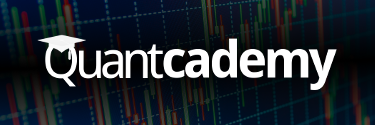Last week I sent an email to the QuantStart mailing list asking for your help.
I asked you which content topics would be most useful in the upcoming year from a broad choice of seven major areas within quant finance.
I received an overwhelming number of responses, many of which contained some fantastic commentary and critique. I'd like to thank all of those who responded–it has been immensely valuable. I hope you will find this years content to be more tailored to your quant trading needs.
The Survey
The email asked which of a set of topics would be of most interest. I made sure they were rather broad to invite further commentary. The following choices were given.
- Advanced Machine Learning/Deep Learning - Deep Learning tutorials with the Tensorflow and Keras libraries. Reinforcement Learning for trading and execution, generative models–such as Generative Adversarial Networks (GANs)–and how to custom-build a deep learning PC.
- Equity Strategies/Factor Analysis - Portfolio construction and risk management using equities/ETFs including momentum models, smart beta portfolios and risk parity.
- Alternative Asset Classes - Systematic futures trading (e.g. trend-following/CTAs), algorithmic forex trading and options trading.
- Python - Advanced tutorials on Python data science/quant libraries such as Statsmodels, Scikit-Learn and Pandas, to complement the beginner/intermediate tutorials already available.
- Trading Infrastructure - Deeper understanding of event-driven trading systems, deployment and management of remote trading systems, integration with brokers (including OANDA and Interactive Brokers) via their APIs and the FIX protocol.
- Mathematics - "Crash course" in Linear Algebra, Calculus, Probability and Statistics for quant finance/machine learning. Entry level courses on Stochastic Calculus and Derivatives Pricing. More advanced Time Series Analysis and Econometrics.
- Algo Trading as a Business - Raising capital, proprietary trading, starting a quant hedge fund, tax for algo trading.
Not only did many of you provide a vote (or three!) but you also took the opportunity to let me know about the issues you were facing and how you would like to see them solved.
The results of the voting are as follows:
 Percentage votes by topic on email survey
Percentage votes by topic on email survey
Advanced Machine Learning/Deep Learning was overwhelmingly the most popular topic, with nearly a third of you voting for it. This is not surprising given the popularity of the field across many segments of technology right now. It was also abundantly clear that you did not simply want more tutorials on Deep Learning as there are plenty on the web already. Instead you were extremely keen to know how to apply Deep Learning to quantitative trading, which is far less widely discussed. This is an exciting frontier for quant retail traders. The software and hardware is now available cheaply enough to carry out your own research and produce extremely sophisticated strategies.
The next most popular topic was that of Equity Strategies and Factor Analysis, which includes the concepts of Modern Portfolio Theory, its shortcomings, as well as equity asset allocation alternatives, such as Smart Beta, Risk Parity and Momentum. All of these topics are extremely popular in institutional asset management right now.
Trading Infrastructure was also a popular vote. Many of you described how you would like to see more discussion on actually taking your strategies to market with brokers such as IB and OANDA.
One surprise was actually how many of you wanted to learn some mathematics from first principles despite the prevalence of great alternative resources for mathematics online. Many of you were particularly interested in learning the necessary topics to "get up to speed" in quant finance and machine learning. The major topics applicable to quants and data scientists are Linear Algebra, Multivariable Calculus, Probability and Statistics. Other topics include Numerical Optimisation, Information Theory and Stochastic Calculus.
Python is always a popular topic for quant finance blogs and a large segment of you wanted to go deeper with Scikit-Learn and Pandas as well as take a look at other libraries such as Statsmodels. There is no shortage of Python tutorials online but many of you wanted to see advanced actionable Python that could be applied to quant finance, data science and machine learning problems.
A topic that is rarely discussed on a retail-oriented blog is how to go further with your algo trading beyond simply managing your own account. It isn't obvious how to progress for those not part of the industry. Many of you were interested in learning about proprietary trading and starting a quant fund. Taxation is also an extremely important component of algorithmic trading and, largely due to its jurisdictionally-dependent and rapidly-changing nature, is not often discussed.
I was also surprised that most of you were interested in equities and machine learning with slightly less representation for alternative asset classes such as futures, options and forex. One could assume this could be due to the heavy focus of QuantStart on US equities to date. Despite this nearly 10% of you wanted to see more asset classes beyond stocks.
Upcoming Content
With those votes in mind lets take a look at what is to come in the upcoming year.
Advanced Machine Learning and Deep Learning
It is clear that Deep Learning along with Reinforcement Learning and other advanced ML models were extremely popular within the survey. Hence I have decided to produce a set of tutorials on the broad field of Deep Learning. It will ultimately converge on fully-coded implementations of trading strategies using these models.
While it is a very extensive and rapidly-changing area of research I believe it is possible to distill the essence of Deep Learning into a set of tutorials that gradually increase in expertise. Ultimately this will provide you with a framework for algo trading that you can use as a template for your own models.
Expect to see an introduction to Deep Learning along with library tutorials in Tensorflow and Keras within the near future on the site.
Equity Strategies and Factor Analysis
I also want to help all of those who voted for Equity Strategies and Factor Analysis to develop their own asset allocation techniques. This might be with their own backtesting frameworks or using a tool such as QSTrader. I've briefly touched on the topic of asset allocation in the post on Monthly Rebalance Strategies before. However we will be looking much more closely at this aspect of quant finance in the future.
We will be going deeper into this field by studying Markovitz' Modern Portfolio Theory and the Capital Asset Pricing Model. We will see how it is derived and discuss the modern criticisms levelled against the theory. We will consider alternative academic approaches such as Behavioural Investing and other approaches to portfolio construction, such as Momentum, Risk-Parity and Smart Beta.
Most importantly we will implement these stratgies in QSTrader so that we can see how they have performed in the recent past under a realistic assessment of transaction costs.
Trading Infrastructure
As I have pointed out multiple times on the site taking a vectorised backtest into an event-driven remote trading model against a brokerage API is a substantial task. While I've briefly discussed how to setup an IB account and produced a basic streaming forex model against the OANDA API it is necessary to update the situation for 2017.
Amazon Web Services is now the premier cloud hosting provider with many latency-insensitive trading models running within their infrastructure. In addition Interactive Brokers have not only released a new native Python API but they have also opened up the possibility to try a full paper trading account without the need to deposit 10,000 USD in an account. More brokers are bringing out an API as they realise the potential for the growth in the algo trading market at the retail level, which makes the infrastructure and deployment aspects all the more important.
Hence we will be discussing how to utilise version control software such as Git as well as continuous integration and continuous deployment, which add significant robustness to our algo trading deployments.
We will also look at end-to-end deployments running both paper trading and live trading strategies against a broker using IB and AWS. We will discuss the exact "implementation issues" that crop up when trying to do so.
Mathematics
I've often been hesistant to write too many mathematically-heavy posts as they're not often as actionable as trading strategy implementations. However it is clear that many of you would love to go "back to basics" and carry out a "crash course" in the most important quant finance and machine learning mathematical subjects.
I've decided that a particularly useful series for many of you based on your responses would be to go through some early undergraduate/college-level Linear Algebra concepts. This would include Matrix Algebra, Systems of Linear Equations, Matrix Decomposition and Eigenvalues/Eigenvectors. Also discussed will be the most relevant Linear Algebra applications to quants including the Covariance Matrix, Principle Components Analysis, Ordinary Least Squares and Efficient Portfolios.
Eventually we will be covering Multivariable Calculus, Probability, Information Theory and Numerical Optimisation, which will be extremely valuable to those who want to dive into the Deep Learning research papers for more quant trading ideas.
A Big Thank You
Finally I would like to say a big thank you to everyone who voted and provided me with such great feedback. It has been extremely helpful to learn about your own algo trading stories and quant finance educational path.
Given what you have all voted on and what you have told me I'm hopeful that the content in the near future will be far more tailored and actionable to the current issues you are facing in your algo trading journey.
-Mike


